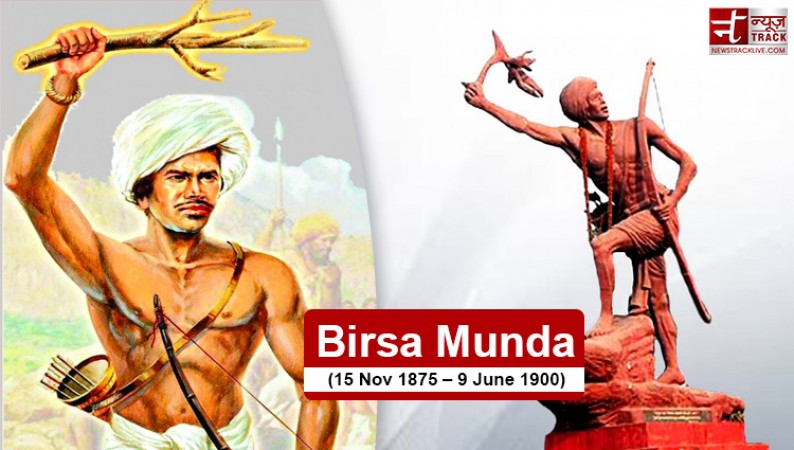
Every year on June 9th, we commemorate the death anniversary of Birsa Munda, a visionary leader and revolutionary who dedicated his life to fighting for the rights and freedom of his people. Birsa Munda, a tribal icon and a symbol of resistance, left an indelible mark on the pages of Indian history. On this solemn occasion, we reflect upon his extraordinary life, his struggle against oppression, and his enduring legacy.
Birsa Munda was born on November 15, 1875, in Ulihatu village in present-day Jharkhand, India. He belonged to the Munda tribe, one of the indigenous tribes of the region. From a young age, Birsa showed exceptional leadership qualities and a deep sense of empathy towards the marginalized and exploited tribal communities. He witnessed the injustices perpetrated by the British colonial rulers and local landlords who exploited the tribals for their own gain.
Inspired by the teachings of his ancestors and their reverence for nature, Birsa Munda developed a strong sense of identity and pride in his tribal heritage. He realized that the only way to secure a better future for his people was through resistance and struggle. Birsa began organizing the tribals, urging them to unite and fight against the oppressive forces that sought to control and exploit them.
Birsa Munda became a charismatic leader who fearlessly challenged the established order. He advocated for the rights of tribals to their land, resources, and cultural autonomy. His speeches resonated with the masses, and he soon gained a significant following. Birsa's vision extended beyond the boundaries of his own tribe, as he sought to unite all tribal communities across the region, transcending the barriers of language and culture.
In 1895, Birsa Munda led a rebellion against the British and their collaborators, demanding the restoration of tribal rights and an end to the oppressive practices imposed on them. The revolt, known as the Ulgulan movement or the "Great Tumult," shook the foundations of the colonial rule. Birsa and his followers launched guerrilla attacks and disrupted the functioning of the colonial administration, spreading fear among the oppressors.
However, Birsa's fight for justice was cut short when he was arrested by the British authorities on February 3, 1900. He was charged with sedition and conspiracy against the colonial government. Despite his young age, Birsa displayed remarkable courage and resilience during his imprisonment. However, his health deteriorated due to the harsh conditions of the jail, and tragically, he passed away on June 9, 1900, at the tender age of 25.
Although Birsa Munda's life was short-lived, his impact on the freedom struggle and the tribal rights movement was immense. He became an inspiration for future generations of leaders and activists who fought for the emancipation of marginalized communities. His legacy continues to live on, as his ideals of social justice, equality, and cultural preservation remain relevant in our modern society.
Today, June 9, on Birsa Munda's death anniversary, we pay tribute to this extraordinary son of the soil. We honor his indomitable spirit, his unwavering commitment to the cause of the downtrodden, and his vision for a more inclusive and equitable society. Let us draw inspiration from his life and strive to carry forward his unfinished mission of ensuring justice, dignity, and empowerment for all.
As we remember Birsa Munda, let us also reflect on the challenges that tribal communities still face today. It is our collective responsibility to address the social, economic, and political disparities that persist and work towards a society where every individual, irrespective of their background, can live with respect and dignity.